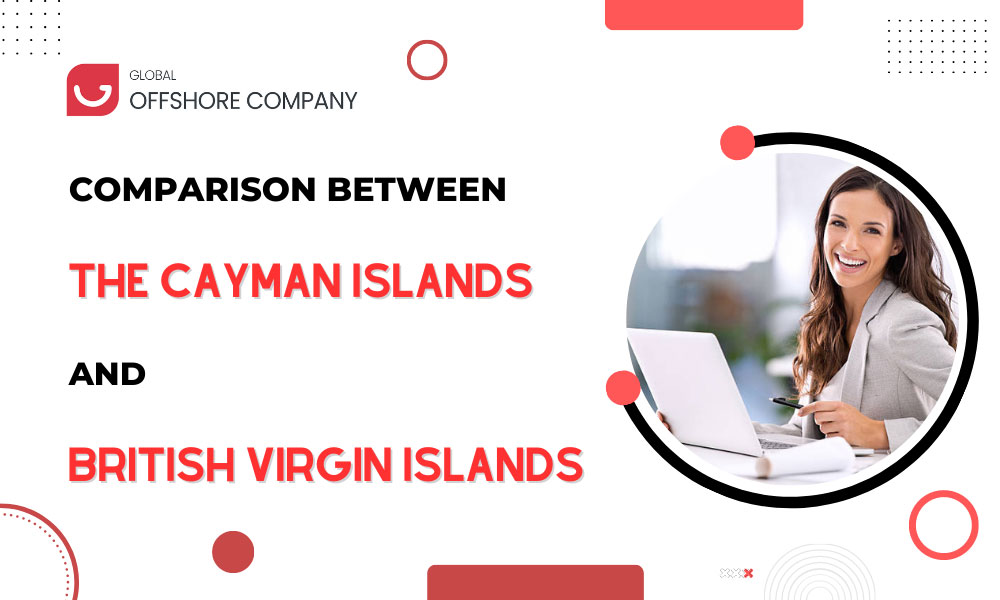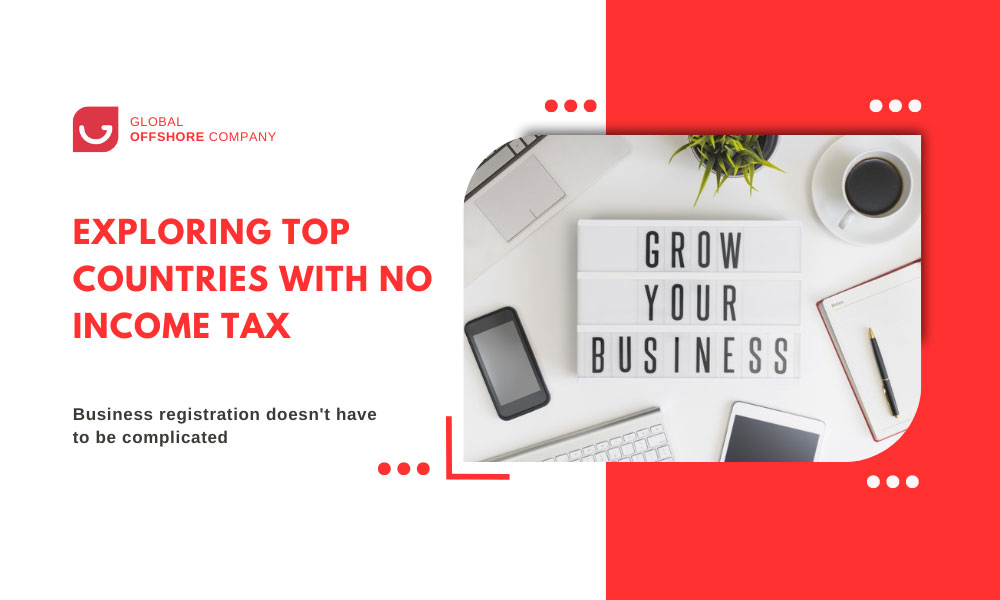Navigating Offshore Horizons: British Virgin Islands vs. Cayman Islands
Unveiling the Parallel Universes of Offshore Business
The world of offshore business holds a realm of opportunities for global entrepreneurs seeking tax-efficient havens to nurture their ventures. At the forefront of this realm stand the British Virgin Islands (BVI) and the Cayman Islands, both esteemed as top-tier jurisdictions for offshore company formation. In this insightful journey, we traverse the striking similarities and subtle nuances between these two island paradises, dissecting their advantages, intricacies, and considerations to assist you in making the right choice for your offshore venture.
BVI vs. Cayman Islands: A Glimpse
Intricately comparing these two territories unveils subtle facets that mold your choice:
Both the British Virgin Islands and the Cayman Islands, as British Overseas Territories in the Caribbean Sea, stand renowned globally as premier tax havens.
Their autonomy, furnished by independent legal and judicial systems, enhances their investment magnetism.
British Virgin Islands: A Deeper Look
Distinguished by exceptional political and economic stability, the British Virgin Islands (BVI) emerges as a premier global choice for offshore endeavors. An astonishing 40% of the world's offshore companies initiate their journey here, as revealed by the International Consortium of Investigative Journalists (ICIJ). Notably, the Financial Services Commission's Statistical Bulletin reported over 374,890 Business Companies (BCs) on the Register by September 2022.
Cayman Islands: Insights Unveiled
Equally formidable is the Cayman Islands, renowned as a quintessential offshore financial hub, particularly for international businesses and offshore investment funds. Sharing a legal foundation akin to the BVI, both operate under the English common law system. Notably, the Cayman Islands Limited Liability Company (LLC) presents a versatile structure, spanning investment funds, joint ventures, private equity, and more.
Common Grounds: Why BVI and Cayman Islands Shine
Offshore Titans: Both the BVI and the Cayman Islands command a robust presence on the global stage as preferred offshore destinations. Their reputations are cemented as alluring tax havens, offering entrepreneurs a strategic foundation for international business.
Tax Efficiency: A standout feature in both locales is the absence of corporate tax, capital gains tax, gift tax, inheritance tax, sales tax, and value-added tax. Provided your business conducts operations beyond their shores, your tax worries dissipate. Dividends, interests, and royalties remain tax-exempt.
Corporate Flexibility: BVI Business Companies and Cayman Islands Exempted Companies epitomize flexible corporate structures. The requirement for resident directors is waived, meaning you can steer your venture without the need for nominee directors.
Effortless Incorporation: The streamlined incorporation process is a mutual trait. Establishing a BVI business company or a Cayman Islands exempted company takes a mere 2 to 3 working days, welcoming expeditious launches.
Minimal Demands: Red tape is minimal. Capitalization mandates, annual shareholder meetings, and the submission of financial records find no place in this environment, enabling a hassle-free operational experience.
Shield of Privacy: Recognizing the value of confidentiality, both jurisdictions prioritize safeguarding directors', shareholders', and officers' information, ensuring it remains beyond public reach.

Demystifying Economic Substance Requirements in Offshore Jurisdictions
British Virgin Islands: Economic Substance Unveiled
The BVI has embarked on a journey to reinforce economic substance within its offshore ecosystem. The Economic Substance (Companies and Limited Partnerships) Act, 2018, underscores the mandate for certain entities engaged in "Relevant Activities" to demonstrate substantial economic presence within the BVI.
Relevant Activities: These encompass core sectors like banking, insurance, fund management, leasing, headquarters, shipping, holding, intellectual property, and distribution and service centers.
Substantial Economic Presence: Entities involved in relevant activities are required to exhibit tangible economic activities within the BVI. This includes conducting core income-generating activities, maintaining adequate physical presence, employing qualified staff, and utilizing necessary assets.
Reporting and Compliance: Businesses subject to the Economic Substance requirements must annually report specific information to the BVI International Tax Authority (ITA). Non-compliance can lead to penalties or even the striking-off of the entity from the BVI Register.
Cayman Islands: Aligning with Global Standards
The Cayman Islands, too, have embraced Economic Substance Laws in alignment with international expectations. The International Tax Co-operation (Economic Substance) Law, 2018, along with its accompanying regulations, mandates entities engaging in "Relevant Activities" to uphold genuine economic substance within the jurisdiction.
Relevant Activities: The scope includes banking, insurance, fund management, finance and leasing, headquarters, shipping, holding, intellectual property, and distribution and service centers.
Economic Substance Requirements: Entities involved in relevant activities must conduct core income-generating activities, maintain adequate physical presence, employ qualified personnel, and utilize necessary assets within the Cayman Islands.
Annual Reporting: Businesses subject to the Economic Substance requirements must annually report to the Cayman Islands Department for International Tax Cooperation (DITC). Non-compliance can result in penalties, reporting to foreign tax authorities, or even entity de-registration.
Navigating the Impact of Economic Substance Laws in BVI and the Cayman Islands
For businesses operating in both the BVI and the Cayman Islands, adhering to Economic Substance Laws is imperative. These regulations intend to ensure that entities registered in these jurisdictions engage in real economic activities rather than being vehicles solely for tax optimization. By necessitating substantial presence and activities within their respective boundaries, the BVI and the Cayman Islands uphold international standards of transparency and authenticity.
Choosing Your Offshore Path: Considerations
When selecting an offshore jurisdiction, understanding the Economic Substance Laws becomes crucial:
- Nature of Business: Consider whether your business falls within the scope of relevant activities and assess your ability to meet the economic substance requirements.
- Physical Presence: Evaluate your potential to establish and maintain a substantial physical presence, including qualified personnel and necessary assets.
- Reporting and Compliance: Factor in the reporting obligations and compliance efforts required by each jurisdiction.
Ultimately, navigating the Economic Substance Laws in the BVI and the Cayman Islands demands a comprehensive understanding of your business model, compliance capabilities, and the alignment of your goals with these evolving regulations.
Banking Insights: Navigating Business Accounts
In the labyrinth of business banking, both havens share a common trait: rigorous control over business banking. As a result, entrepreneurs often turn to offshore banks or Electronic Money Institutions (EMIs) to manage their business finances. Notably, BVI entities may find favorable odds in securing EMIs, offering more streamlined pathways compared to other jurisdictions.

Decoding the Nuances: BVI vs. Cayman Islands
While the BVI and the Cayman Islands share striking resemblances, a closer inspection uncovers subtle differences that might steer your decision:
Annual Compliance Fees: The Cayman Islands tend to command higher annual costs compared to the BVI. Budget considerations might sway your choice in this regard.
Confidentiality: If preserving your company's privacy is paramount, BVI's fortified legislative framework offers greater confidentiality protection compared to the Cayman Islands.
Stamp Duty: While stamp duty doesn't burden business transactions involving companies in both havens, nuances exist. In the BVI, land ownership transactions require tax payments, while the Cayman Islands impose stamp duties on specific documents.
Licenses and Compliances for Investment Funds: A divergence emerges in investment fund oversight. The Cayman Islands exhibit a more lenient custodial approach, whereas BVI mandates investment fund audits.
BVI or Cayman Island-Choosing Wisely: Factors to Consider
In the captivating saga of the British Virgin Islands versus the Cayman Islands, your selection rests on contextual intricacies. To navigate this decision, evaluate annual compliance costs, the need for confidentiality, stamp duty considerations, licensing, and compliance for investment funds. Carefully weigh these factors to forge a path aligned with your business's aspirations.
As global pioneers seek a sanctuary for offshore growth, the British Virgin Islands and the Cayman Islands stand as bastions of opportunity. Each holds a unique allure, but the ultimate choice depends on your enterprise's aspirations and prerequisites. Embark on your offshore journey empowered with insights, and rest assured that your choice will shape your business's trajectory in the global landscape.
For expert guidance on capitalizing on the BVI or Cayman Island benefits in your offshore endeavours, connect with Global Offshore Company (G.O.C) consultants or drop us an email at info@bcincorp.com

Disclaimer: This article is for informational purposes only and does not constitute legal advice. Consult legal and financial experts for specific guidance tailored to your business needs.










